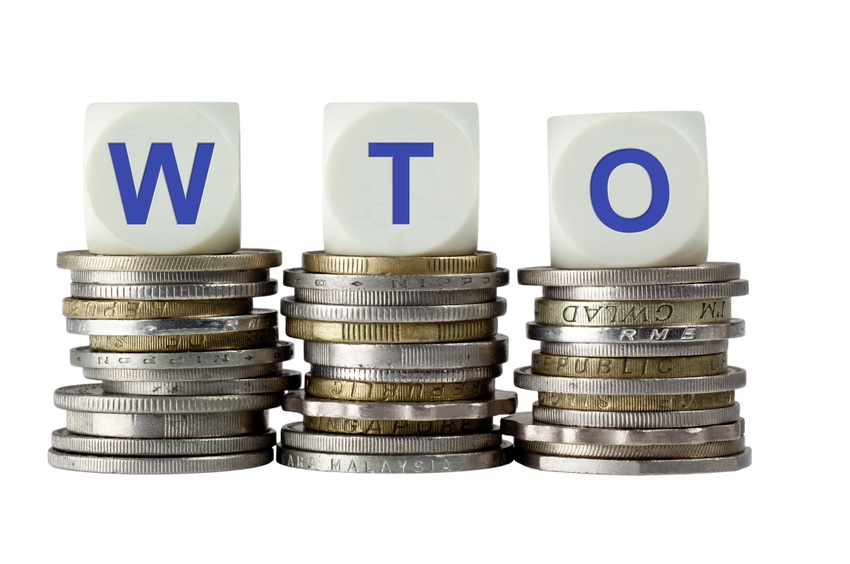WTO: The other trade battle
While the world’s attention is focused on U.S.-China talks, other trade issues continue.
December 5, 2019

Most of us can only remember as far back as the post-WWII era, when the U.S. was the only remaining major power in the world. Our factories were untouched by bombs, our workforce was huge and disciplined, our natural and agricultural resources unmatched and the rest of the world in ruins. We had the world by the tail.
The General Agreement on Tariffs and Trade (GATT) was created in 1947 to establish some order and promote free trade in that era. The World Trade Organization (WTO) grew out of that effort in 1995, refining and bringing more enforcement to the scene, including an appellate judge panel to evaluate complaints and authorize limited retaliatory actions.
That appellate panel is about to cease action, as on December 11 it will no longer have a quorum to operate. The U.S., unhappy with the appellate panel, has been blocking appointments of new judges.
And continuing their style of talking a lot, but not changing anything, the rest of the member countries have not heeded the calls for reform from the U.S. or come up with any mechanism to replace the appellate panel. Maybe that has something to do with structure—all of the 164 members have veto power.
In addition to the appointment tactic, the U.S. has also been looking at budget tools, proposing to severely cut funding to the appellate panel.
America is not the only country that exports a lot of agricultural commodities, so not having any body with authority policing the beat is no help to industries trying to keep pace with a fast-paced global economy. Not only that, but disputes between countries can have collateral damage, as American farmers have been experiencing.
The China conundrum
President Trump and U.S. Trade Representative Robert Lighthizer indicated early on they did not have the patience to wait on the WTO to deal, for example, with all the issues they have with China.
For example, China is still classified as a “developing” economy by the WTO. China is the largest exporting economy in the world, yet it still gets advantages and exemptions to which small countries are entitled to give them a competitive leg up. That the WTO has not been able to properly re-classify China is alone a glaring example of the organization’s inability to deal with changing conditions.
Then there is the complaint that the appellate body has been going beyond its mandate, in effect making new rules instead of enforcing those that WTO members have agreed upon. Similar to what we’ve seen on the political front here, where political parties or activists groups try to accomplish through the courts what they couldn’t get passed in Congress, aggressive WTO members have pushed for appellate rulings contrary to existing agreed-upon rules.
China is not the only country that pays lip service to the WTO and then get away with ignoring the rules.
Of course, we’re used to a relatively free market system, where individual companies compete to satisfy the market and grow according to success. China is one country that chooses “national champions,” state-directed companies that get support, favoritism and special financing from the national government to make them bigger and more competitive that their competitors worldwide. Believe it or not, the EU is actually considering programs to do the same thing for certain European companies (“Now Is a Good Time to Modernize the WTO”, Wall Street Journal, 12/02/19).
Part of the problem is figuring out how to apply WTO rules to the Chinese economic model. How does one handle a state-run economy in which company officials are beholden to the government and access to company trade secrets and even customer data can be demanded at any time by the national government. Of course, the Chinese Communist Party is the national government.
Bringing China to heel
That structure is part and parcel of Trump’s and Lighthizer’s beef with China. Many companies, including high technology companies making things important to military applications, have either agreed to share technology, been hoodwinked or coerced into forced technology transfer, while trying to do business with the required Chinese partners.
In addition, a recent story recounted how thousands of Chinese students and professors at American universities are carrying or transmitting sensitive or secret information and technology back to the Chinese government. Some professors are even setting up mirror image labs back in China to replicate research work done in the U.S.—work done at taxpayer expense.
When China was allowed to join the WTO, the theory was that membership and subjection to regulation would continue China’s slow movement toward a market-oriented economy. Not only has that not happened, but President Xi Jinping has accelerated the movement toward more and bigger state-run companies.
The WTO does not appear to be a body that could mobilize a coalition of world powers to confront China and agree to stop trade with China unless it changed its ways. Neither is the U.N.
Some experts recommend a blizzard of WTO cases against China. That seems moot now, but even with an appellate panel that would take years. Any of those ideas or jawboning the major world powers into an informal coalition would take longer than the time one American president has in two terms.
Absent a global coalition to bring China to normal trade practices, the only other method a Communist country will pay attention to is economic pain.
That has to be the conclusion Trump and Lighthizer arrived at. Therefore, they embarked on the unilateral approach, using tariffs. The two are bold and resolute, likely the only two who would try it.
Some observers are saying the WTO situation may take a long time to fix. The Economist magazine posits that perhaps the appellate panel may “die.” Either possibility would make President Trump’s preference for bilateral agreements with countries even more important.
One thing is sure. We have a president without the patience of the professional diplomats that plod slowly along in Geneva and Brussels, content to tread water quietly. Hopefully, that’s a good thing.
Steve Dittmer is a longtime beef industry commentator and executive vice president of the Agribusiness Freedom Foundation.
About the Author(s)
You May Also Like




.png?width=300&auto=webp&quality=80&disable=upscale)
